The holidays are upon us, so whether you looking for film-related gifts or simply want to pick up some of the finest the year had to offer in the category for yourself, we have a gift guide for you. Including must-have books on filmmaking, the best from the Criterion Collection and more home-video picks, subscriptions, magazines, music, and more, dive in below.
4K & Blu-ray Box Sets
There’s no better gift than an epic film collection and this year was an embarrassment of riches thanks to a number of box sets. Coming from The Criterion Collection, this year’s crown jewel is their epic 9-film Pasolini 101 collection while Krzysztof Kieslowski’s Three Colors trilogy looks absolutely stunning in 4K. A five-film Budd Boetticher and Randolph Scott set gathers some of the best westerns of all-time. Steve McQueen’s Small Axe also inches closer to its legacy as five films with a stellar collection. A trio of Tod Browning’s best works, including the overlooked The Unknown, is also a must-own.
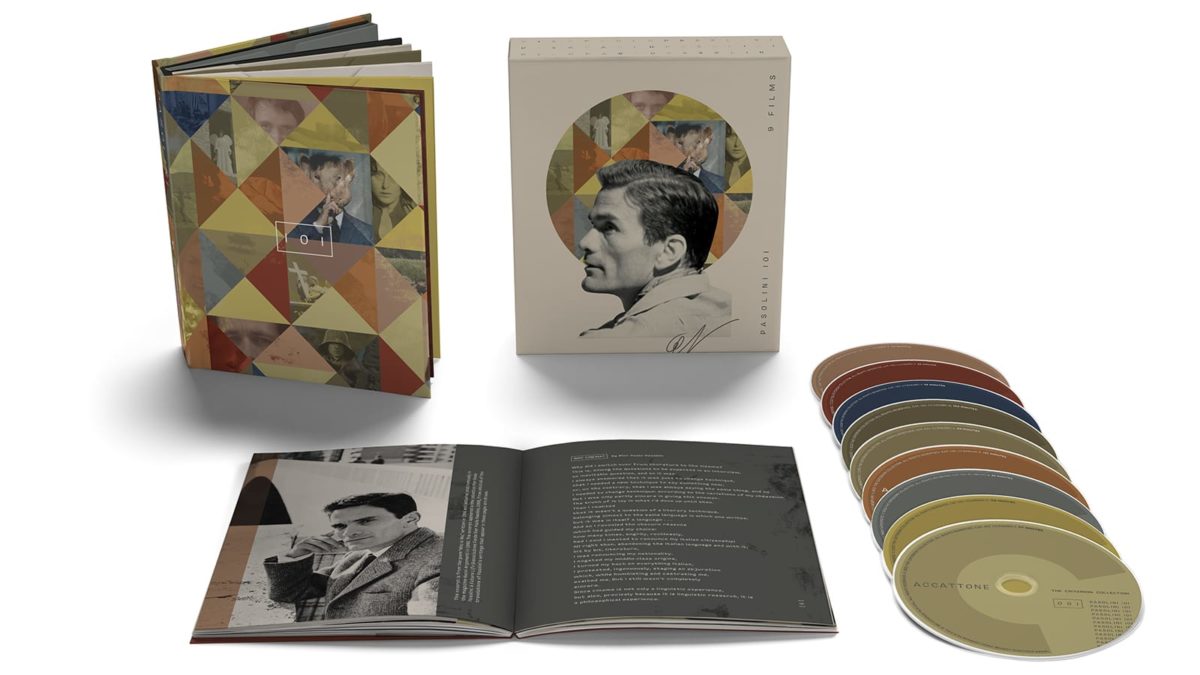
Released at the top of the year, Cinematic Sorceress: The Films of Ninka Menkes brings together new restorations of her trailblazing work. Four perhaps lesser-seen François Truffaut works were released in a set featuring The Wild Child, Small Change, The Man Who Loved Women, and The Green Room. Fans of that set would also enjoy Early Short Films of the French New Wave (which, yes, includes work from Truffaut among many others). Also, not on the film side, but Columbo: The 1970s is an essential pick-up.
Last but certainly not least a new Alfred Hitchcock 4K set recently arrived with Rope, The Man Who Knew Too Much, Torn Curtain, Topaz, and Frenzy. If you’re still in need of a 4K player, there’s also a number of deals available here.
Check out our picks of the best individual releases throughout the year below.
4K Ultra HD
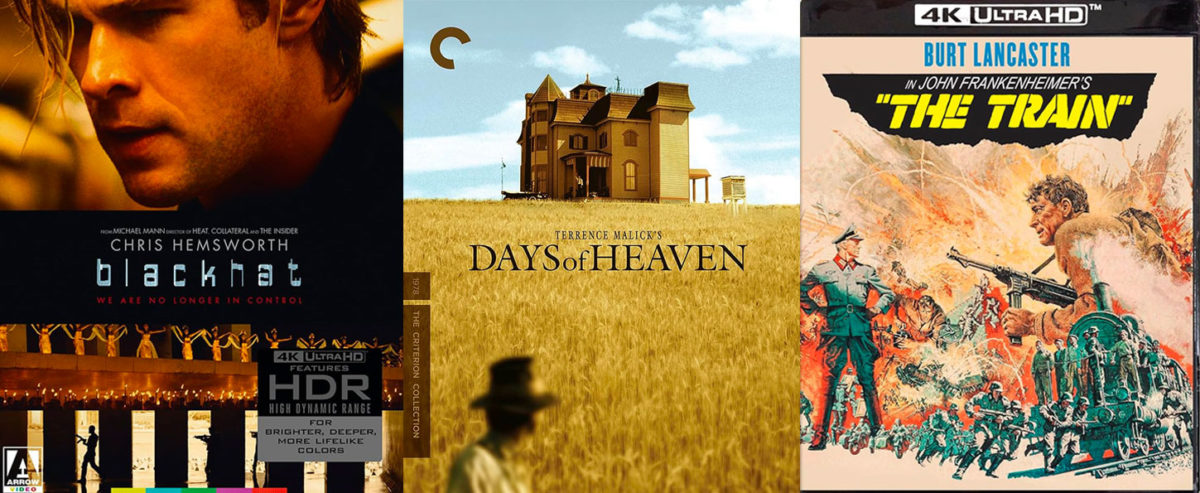
- After Hours
- Akira Kurosawa’s Dreams
- Avatar & Avatar: The Way of Water
- 3 Days of the Condor
- 12 Angry Men
- Blackhat
- Contempt
- Cool Hand Luke
- Crimes of the Future
- Days of Heaven
- Dazed and Confused
- The Dead Zone
- Decision to Leave
- Don’t Look Now
- Duel
- Face/Off
- Fargo
- The Firm
- JFK
- Knock at the Cabin
- The Last Picture Show
- The Lost City of Z
- The Maltese Falcon
- Mean Streets
- Mission: Impossible – Dead Reckoning Part One
- The Mist
- The Night of the Hunter
- Oldboy
- One False Move
- Oppenheimer
- Phenomena
- Rebel Without a Cause
- Red Eye
- Rosemary’s Baby
- The Rules of the Game
- Showing Up
- The Seventh Seal
- Streets of Fire
- Thelma & Louise
- Thunderbolt and Lightfoot
- Titanic
- To Live and Die in LA
- The Train
- The Trial
- The Truman Show
- Vanilla Sky
- Walkabout
- The Wings of Desire
- Witness
Blu-rays
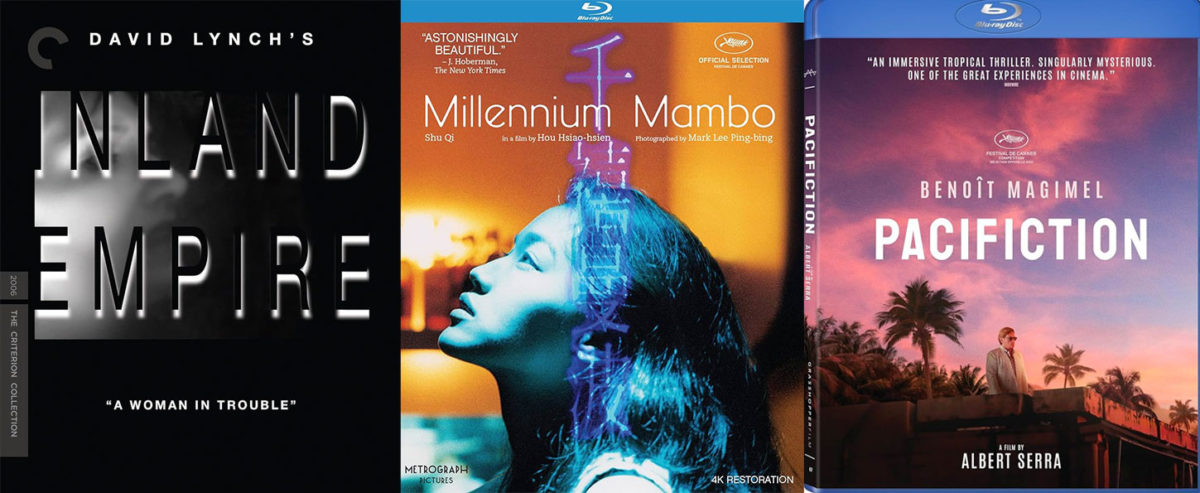
- 35 Shots of Rum
- Asteroid City
- Bergman Island
- B’Twist Now and Sunrise
- Chameleon Street
- Chilly Scenes of Winter
- The Conformist
- The Doom Generation
- The Draughtsman’s Contract
- The Eight Mountains
- EO
- The Fabelmans
- Godland
- Goodbye, Dragon Inn
- Gloria
- Hardcore
- Inland Empire
- In the Cut
- Keane
- Millennium Mambo
- Morvern Callar
- The Novelist’s Film
- One Fine Morning
- Other People’s Children
- Pacifiction
- Passion
- Past Lives
- Petite Maman
- Rewind and Play
- Serpico
- Scarlet
- The Sorrow and the Pity
- Tales From the Gimli Hospital Redux
- Targets
- Trouble Every Day
- Two Films by Marguerite Duras
- Vengeance Is Mine
- Walk Up
- You Hurt My Feelings
Books
Christopher Schobert, our resident book expert, has compiled his favorite filmmaking books of the year. Happy reading!
Bong Joon Ho: Dissident Cinema by Karen Han (Abrams)
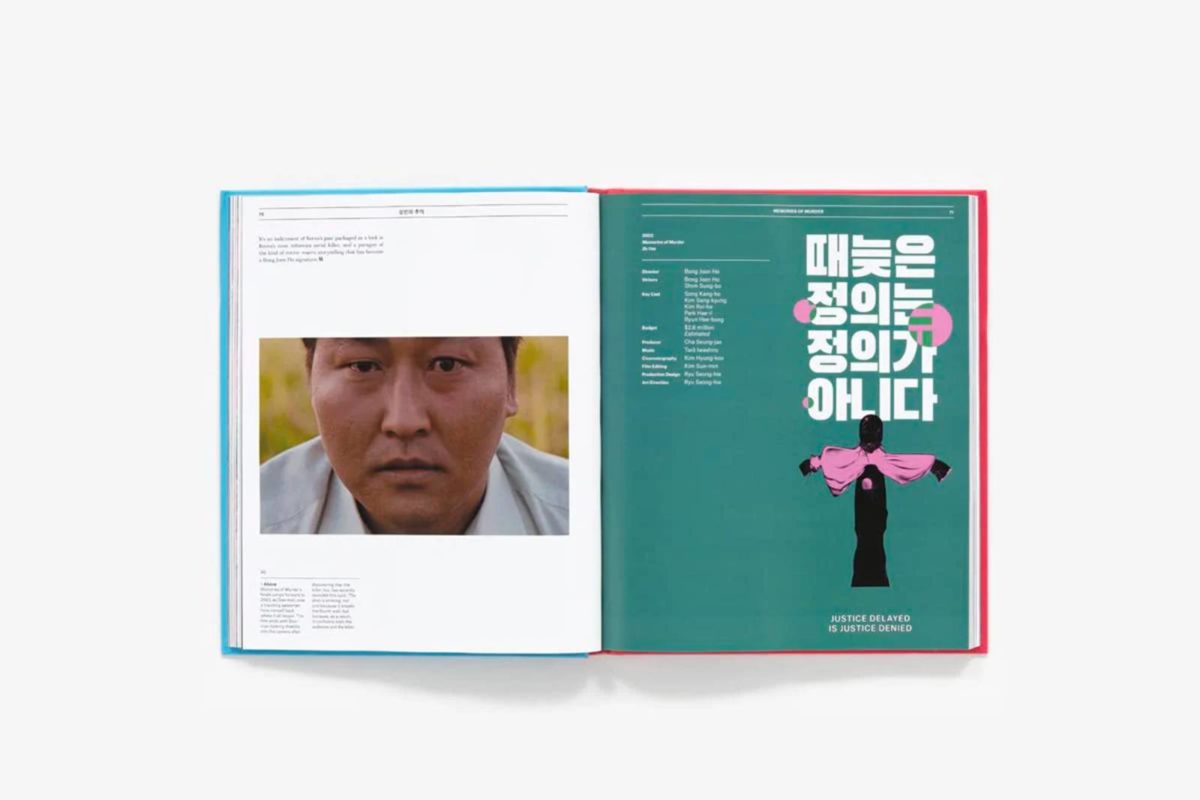
In recent years Little White Lies and Abrams have released wonderfully comprehensive, immaculately designed books about Joel and Ethan Coen, Paul Thomas Anderson, David Fincher, and most recently Sofia Coppola. The latest subject, Bong Joon Ho, could not be more deserving of this treatment. Dissident Cinema is written by the ever-astute Karen Han, who shares Bong’s life story while diving into each entry of his filmography. Yes, there is much to be said about Parasite, The Host, Mother, Snowpiercer, Okja, and Memories of Murder. But Han also finds key connections to Bong’s later work in his debut, Barking Dogs Never Bite, described here as “the most neglected entry in Bong’s oeuvre despite its status as his first cinematic missive to the world.” Dissident Cinema concludes with interviews with some of the director’s frequent collaborators (including Tilda Swinton) a mention of his upcoming adaptation of Mickey7, and musings about his future: “That it’s impossible to guess what kind of story Bong will tell next is part of his appeal as a storyteller––it’s a pleasure to be swept away.
Colors of Film: The Story of Cinema in 50 Palettes by Charles Bramesco (Frances Lincoln)
Colors of Film is an engrossing study of how filmmakers utilize color in complex, ingenious, emotionally impactful ways. Some of these examples (e.g. the red jacket in Schindler’s List) have inspired much discourse. What makes this book––by the always-entertaining and -intelligent critic Charles Bramesco––so special is its focus on less-obvious films. A noteworthy case: Hype Williams’ Belly and its “flights of stylistic fancy.” During its hyper-stylized opening, as gangsters Buns and Sin “prowl through the dance floor, ceiling-mounted blacklights make the men look extraterrestrial, their eyeballs glowstick-turquoise against deeper blue skin.” Other entries focus on everything from Méliès and Sirk to Fassbinder and McQueen. Bramesco’s writing is enthusiastic and wise; his book is a genuine delight.
Lost Highway: The Fist of Love by Scott Ryan (Tucker DS Press)
Last year, Scott Ryan covered David Lynch’s Twin Peaks prequel in Fire Walk With Me: Your Laura Disappeared. (We featured it here.) In 2023, Ryan studies what he calls “the lowest-grossing, most forgotten film of [Lynch’s] career.” Ryan’s Lost Highway: The Fist of Love is every bit as enthralling and insightful as Your Laura Disappeared. The author zeroes in on the elements of Lost Highway that turned off most (but not all) audiences in 1997 but are titillating new (and revisiting) viewers today. Ryan should know; he was one of those who looked away in the nineties: “The first time I saw it, I pushed stop and ejected the VHS tape, popped it back into its rental case at exactly 7:29 minutes into the film, and didn’t watch it again for twenty years.” Naturally, he adds, “I am doing an entire book on it.” In Fist, he has scored interviews with many of the players involved––including actors Patricia Arquette, Balthazar Getty, and Natasha Gregson Wagner––while also analyzing the shooting script, deleted scenes, and possible meaning(s) of it all. This is an absolutely essential guide to the Lynch masterpiece that Matt Zoller Seitz, in his foreword, identifies as the film that “steered [Lynch] away from the mainstream success that he’d inexplicably found between the mideighties and early nineties, and recommitted him fully to the unconscious and uncanny images he’d explored as an art school student and deepened as a creator of experimental fine art.”
But God Made Him a Poet: Watching John Ford in the 21st Century by Scout Tafoya (With an X Books)
“What you’re about to read is a study of the films of John Ford specifically from the vantage point of this moment in time, November of 2022,” writes the gifted critic and filmmaker Scout Tafoya at the start of But God Made Him a Poet. The result is a beautiful work of deeply personal criticism, one that wrestles with the work, persona, life, and legacy of a man whose art was, shall we say, complicated. After a bracing first section that dives right into the issues that make Ford such a lightning rod for criticism, Tafoya moves through the director’s filmography, entry by entry. The films are covered with great humor (on 1938’s The Adventures of Marco Polo: “Sam Goldwyn really thought he had something here”), admiration (“The key thing The Searchers gave me as a young moviegoer was the sense of time and distance”), and an air of sadness (“Ford never looked forward in his last ten years as an artist”). Finally, in the book’s breathtaking last section, Tafoya searches for and finds Ford’s influence in everything from K-19: The Widowmaker to Road House. It is a fitting conclusion for an analysis as complex and important as its subject.
The Cinema of Paul Thomas Anderson: American Apocrypha by Ethan Warren (Wallflower Press)
While there have been fine books exploring the work of Paul Thomas Anderson (such as Adam Nayman’s Paul Thomas Anderson: Masterworks) Ethan Warren’s American Apocrypha stands as an important accounting of PTA’s energy and influence. Timing is one element. The book’s publication in 2023 means it includes Licorice Pizza, along with every Anderson music video to date. Indeed, while the entirety of the text is smart and compelling, it is the analysis of Pizza that most resonates. “There may be tangible movie cameras in Anderson’s ninth film, wielded by young filmmakers reminiscent of the director’s own onetime makeshift crews, but the more evocative ones may be the invisible cameras that Rex Blau summons as he prepares to direct a late-night motorcycle jump,” Warren writes. “All the world’s a soundstage for the born-and-bred auteur, and all the men and women merely extras.”
Burn It Down: Power, Complicity, and a Call for Change in Hollywood by Maureen Ryan (Mariner Books)
The most important book about the entertainment industry so far this year is Burn It Down. Maureen Ryan’s incendiary, deeply upsetting accounting of the systemic issues that foster abuse in Hollywood is a rarity––a text that could lead to real change. Ryan, currently a contributing editor at Vanity Fair, writes with passion and startling clarity. She finds maddening, downright shocking behavior in the writers’ room of Lost and behind the scenes of series like Sleepy Hollow and institutions like Saturday Night Live. The author finds no easy answers, sadly. “Here’s the magic solution to fixing all the terrible stuff: there isn’t one,” she writes. “So what do we do now? We burn it all down.”
The Last Action Heroes: The Triumphs, Flops, and Feuds of Hollywood’s Kings of Carnage by Nick de Semlyen (Crown)
If you grew up in the 1980s, the nostalgic delights of The Last Action Heroes will make your head spin with joy. However there is much more than nostalgia to be found in this study of the era in which Sylvester Stallone, Arnold Schwarzenegger, Chuck Norris, Jackie Chan, Dolph Lundgren, Steven Seagal, Jean-Claude Van Damme, and Bruce Willis won the hearts and minds of moviegoers. de Semlyen documents how and why figures like Stallone and Schwarzenegger, especially, were the right stars at the right time. “The bulging bodies of these stars, with their ammo belts, gleaming combat knives, and unflinching eyes, became the barometer for what it was to be a real man,” de Semlyen writes. This is a gloriously entertaining book filled with oodles of memorable anecdotes. (It’s hard to top the mental image of Van Damme and Seagal facing off at a Stallone house party in 1997. Yes, that actually happened.)
Archive by Sofia Coppola (MACK)
In recent years this column has covered several books focused on the iconic, inimitable Sofia Coppola, including a hardcover career overview and interview collection. Archive is constructed from the personal collection of the writer-director of The Virgin Suicides and Marie Antoinette herself. And as one would expect from a filmmaker known for her sense of style, fashion, and design, the result is positively gorgeous. It is packed with photos, ephemera, collages, and text––nearly 500 pages’ worth. Timed to arrive alongside her latest film, Priscilla, the mighty Archive is a truly fabulous creation for the Coppola congregation. (Available for pre-order now.)
My First Movie: Vol. 2: Spaghetti Westerns, Hollywood Musicals, and Yakuza Movies by Cory Everett (Cinephile LLC)

The makers of Cinephile: A Card Game and A is for Auteur, a delightful picture book for young readers, have a new learning tool for little ones. Badass little ones, that is. Written by Cory Everett and illustrated by Julie Olivi, this new trio is written with wit and visually glorious. Yakuza Movies features entries like “tokyo drifters” and “syndicates,” while Spaghetti Westerns includes “men with no name” and “a dish that’s best served cold.” And Hollywood Musicals has lovely representations of “cheek to cheek” and “life is a cabaret.” My First Movie: Vol. 2 is a starter kit for budding film freaks—and it’s certainly a pathway to cool mom/dad status.
Whit Stillman: Not so long ago (Fireflies Press/FIDMarseille)
Fireflies Press includes its lovely, compact collections of must-own titles (see its Decadent Editions’ releases on Inland Empire and Goodbye, Dragon Inn that we covered in past columns) with a much-needed study of one of our most incisive and witty artists: Whit Stillman. The text covers, with probing detail, the entirety of the life and career of the writer-director-author, from Metropolitan, Barcelona, and The Last Days of Disco to more recent efforts Damsels in Distress and Love & Friendship. While the entirety of the book is both highly readable and hugely insightful, the “Archive” section is undoubtedly a favorite. (The Metropolitan “dossier” features an oh-so-Stillman admission: “Within the draft pages of an abandoned Metropolitan novella adaptation Stillman confesses, ‘I have burnt more novels than some prolific novelists have published. I am not proud of that.’”) As someone who treasures my used copy of Stillman’s 2000 Disco follow-up in novel form, The Last Days of Disco, With Cocktails at Petrossian Afterwards, having a new addition to the canon is cause for celebration.
A Masterpiece in Disarray: David Lynch’s Dune — An Oral History by Max Evry (1984 Publishing)
The book that fans of David Lynch’s 1984 adaptation of Frank Herbert’s Dune have been awaiting for nearly four decades has finally arrived. For more than 500 (!) pages, author Max Evry takes us through every element of the conception, creation, destruction, and legacy of the film. The book also features new interviews with the key players––Kyle MacLachlan, Sean Young, even (briefly) Lynch himself. “For me personally, Dune is a failure,” Lynch tells Evry. “But I want to say today that I was so fortunate to work with the greatest bunch of actors and the greatest crew!” This is a book to be cherished, and one that is likely the definitive account of the making of a poorly-treated film.
Streaming Service Subscription
After you’ve helped out your local theater, consider a select few streaming services that care a great deal about preserving the art form of cinema. As always, one can’t beat the variety and quality found at the Criterion Channel, while MUBI continually champions bold filmmaking voices both old and new, offering some of the year’s best films.
For those seeking even more worthwhile gems from across the world, OVID.tv and Film Movement Plus continually present eclectic lineups, along with a newly-launched Kino Film Collection. With these services, one can not only cut all the cable cords, but also unsubscribe from the plethora of offerings that are more about quantity than quality.
Combining the above two categories, we also recommend a Metrograph membership, which only runs $50 a year and not only includes a number of top-notch streaming offerings, but $7 off in-theater tickets as well.
Film Magazines
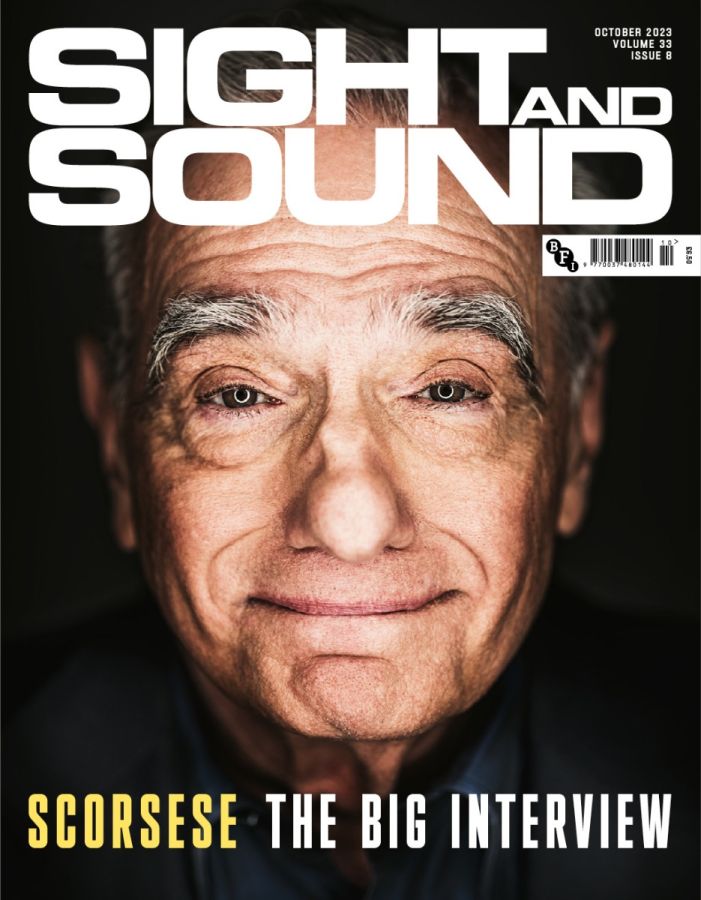
As an appreciation for the art of film criticism seems to be ever-dwindling, this holiday we recommend supporting outlets offering up some of the finest analysis and consideration of the craft of moviemaking—including Filmmaker Magazine, Cinema Scope, Sight & Sound, Little White Lies, ASC, and MUBI’s newly launched Notebook Magazine.
Prints, Posters, and More Merch
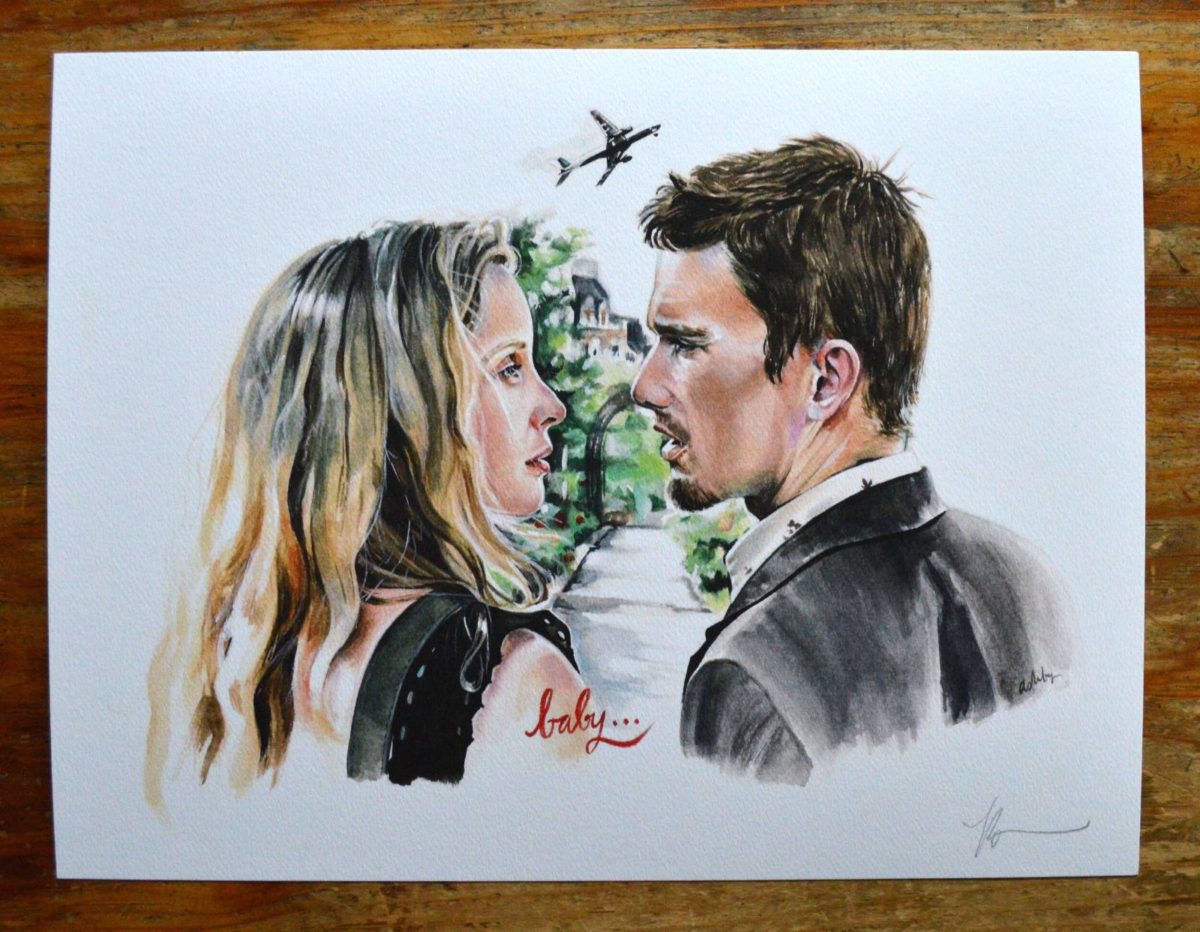
There’s no better piece to hang on your wall than a print from the cinema-obsessed Brianna Ashby, who is offering work featuring the Before series, Harrison Ford’s iconic roles, Twin Peaks, Fantastic Mr. Fox, and more.
The NYC-based Posteritati has a staggering archive of movie posters from every era of filmmaking. For just a few recommendations: The Tree of Life one-sheet, a German Last Year at Marienbad poster, a Japanese Magnolia poster, Stolen Kisses one-sheet, a recent Italian In the Mood for Love re-release poster, and a vast archive of NYFF posters.
For more film-related merch, don’t miss Steven Soderbergh’s site Extension 765 featuring shirts honoring Mike Nichols, Dede Allen, Pauline Kael, and more.
Vinyl
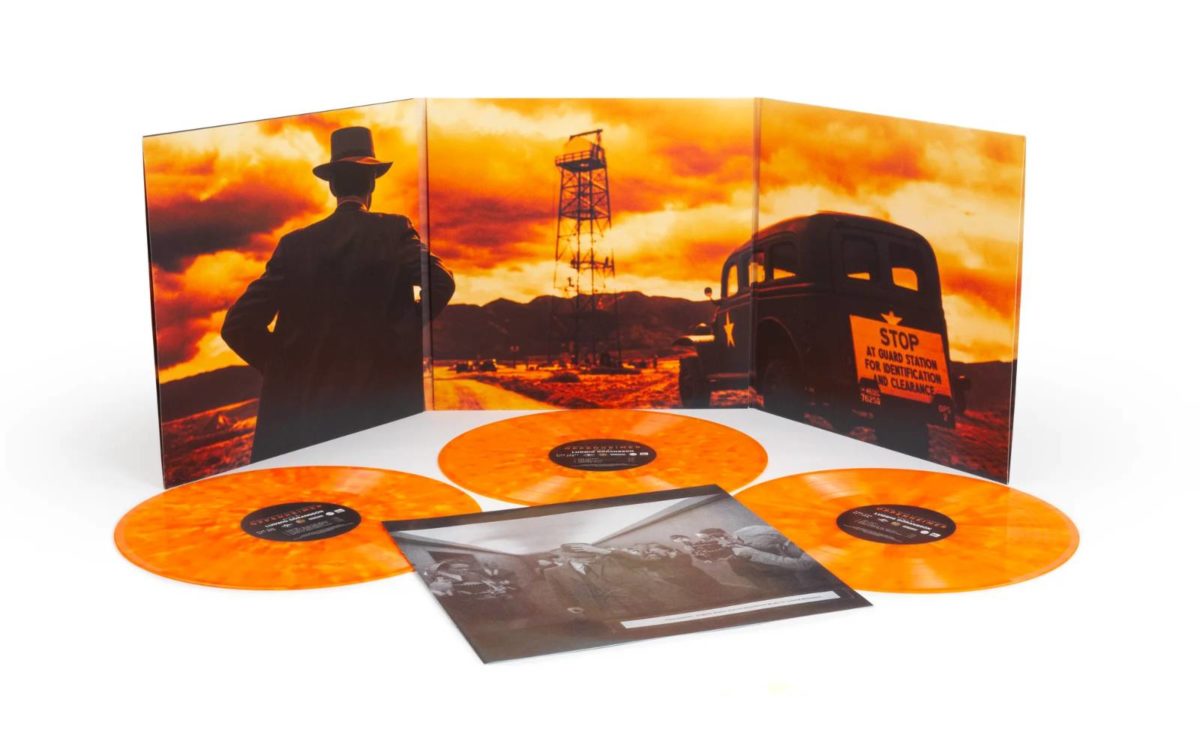
On the vinyl music side, Mondo has released a 3-LP set of Ludwig Göransson’s Oppenheimer score and a 2-LP set of Lorne Balfe’s Mission: Impossible – Dead Reckoning Part One score. Other notable recent vinyl soundtrack releases include Killers of the Flower Moon, The Virgin Suicides, The Holdovers, Asteroid City, Past Lives
Support Your Local Arthouse Theater
As the future of theatrical distribution, especially in the indie realm, continues to find a footing, local arthouse theaters need your support more than ever. Whether it’s a gift membership or certificate, be sure to check out your local arthouse theater to see what they offer this season.
Happy holidays from The Film Stage!
